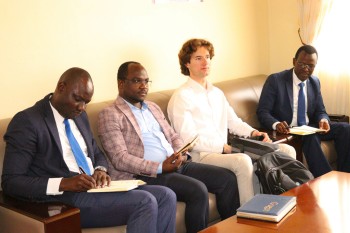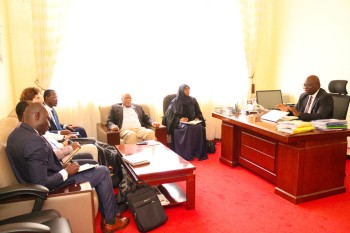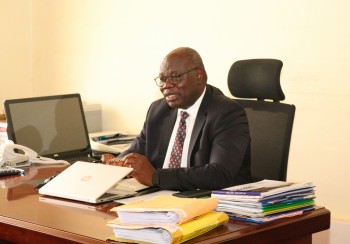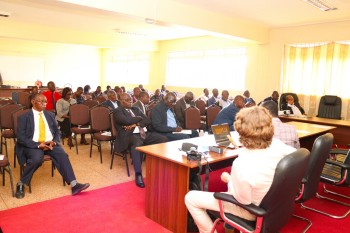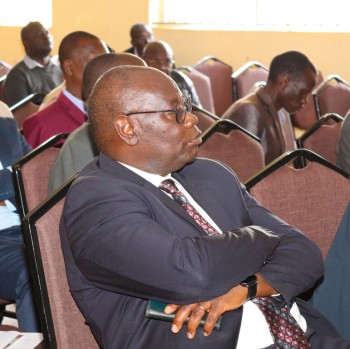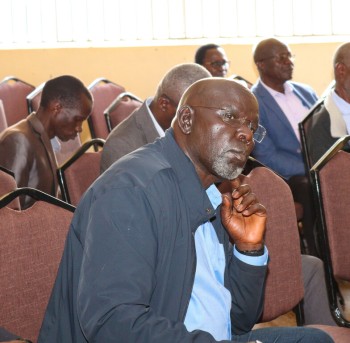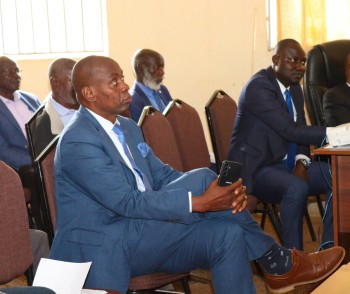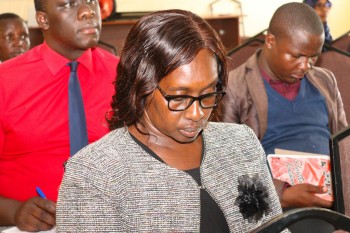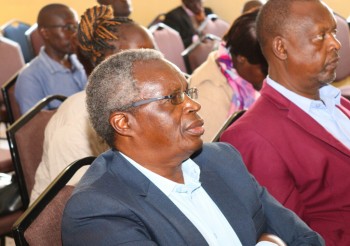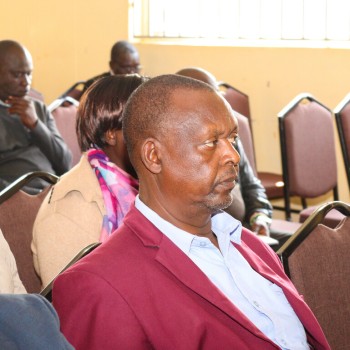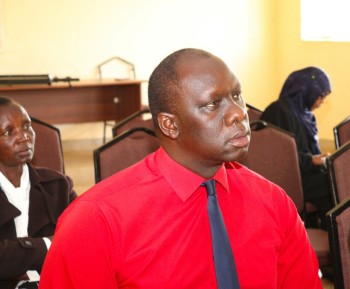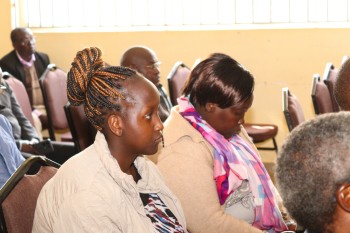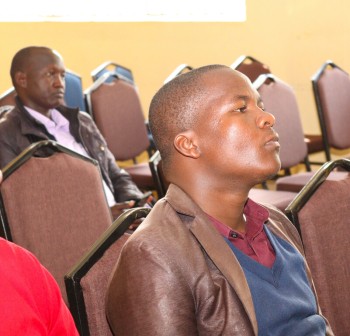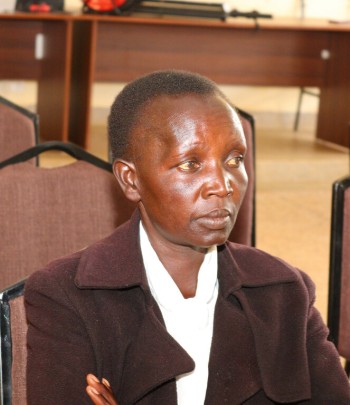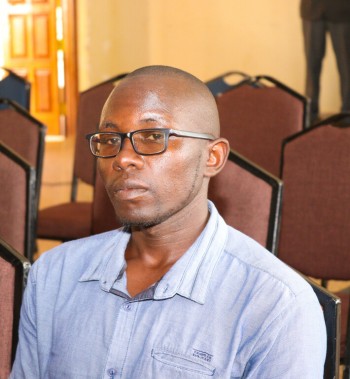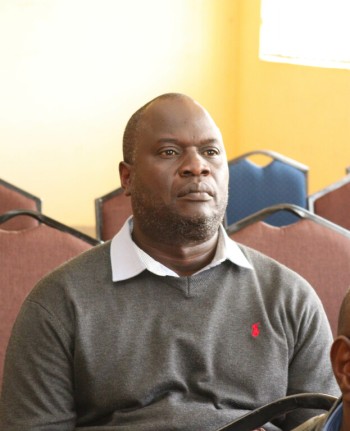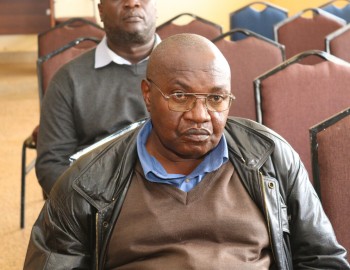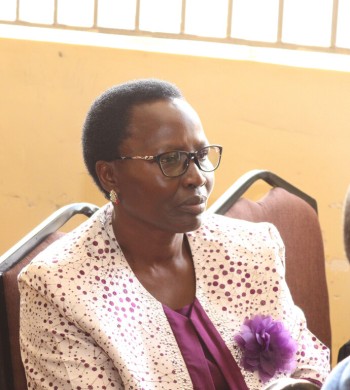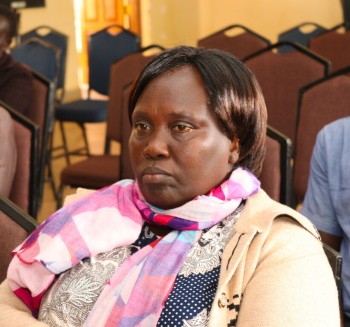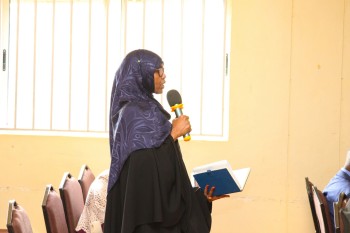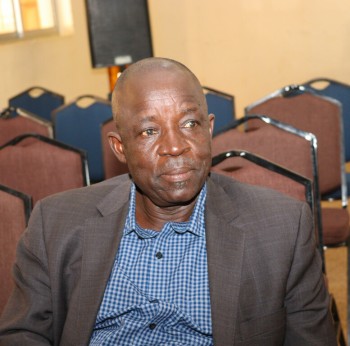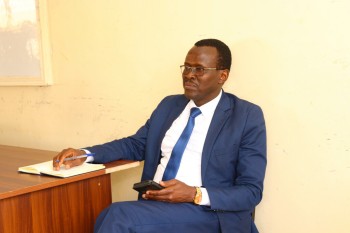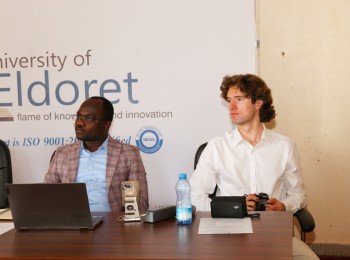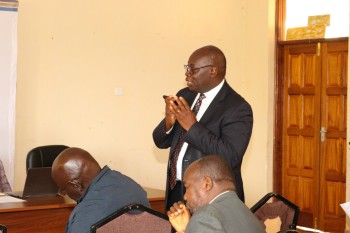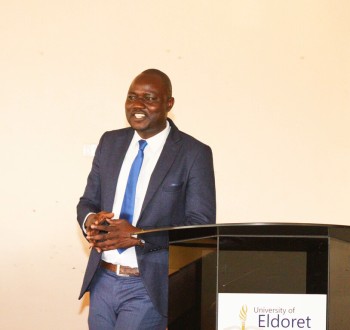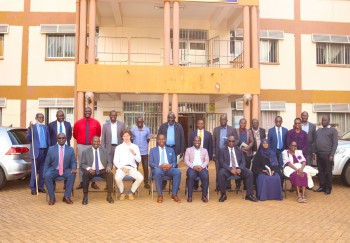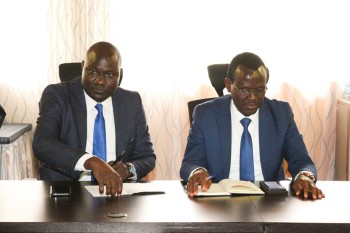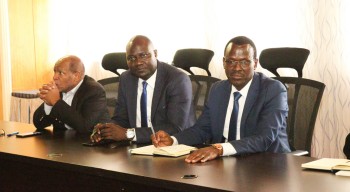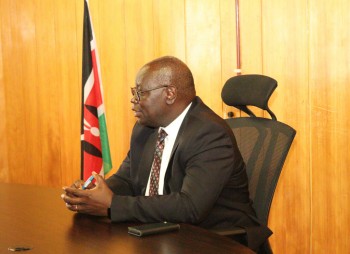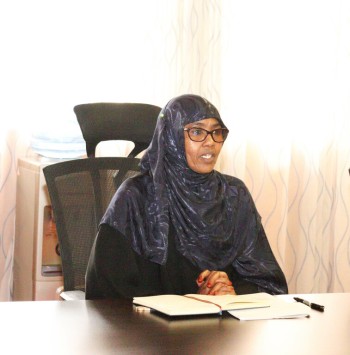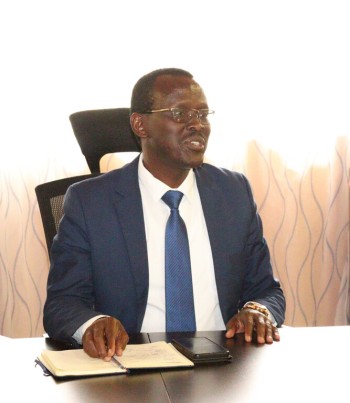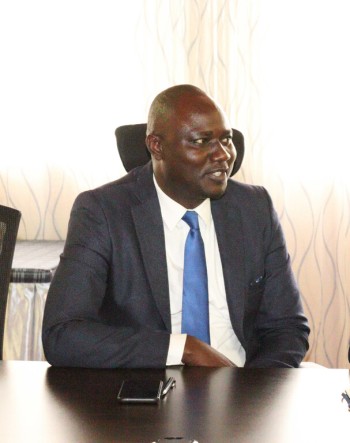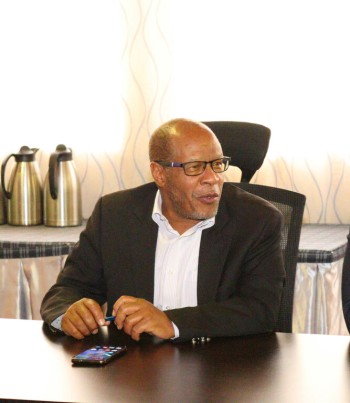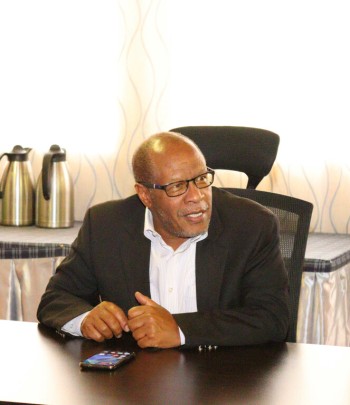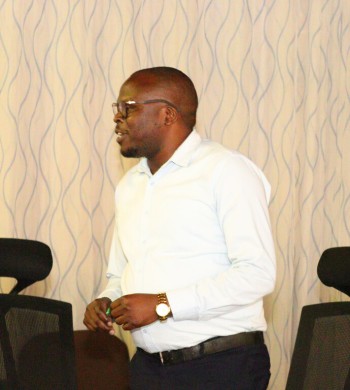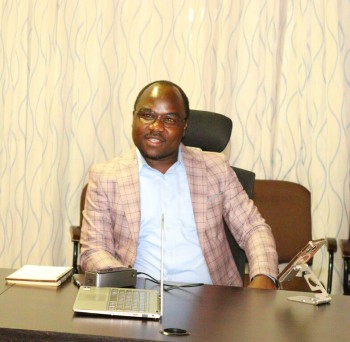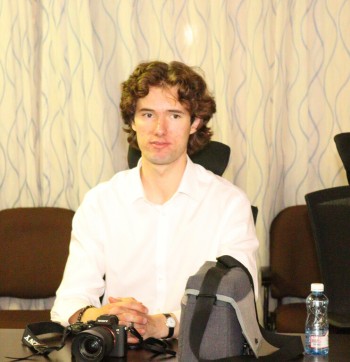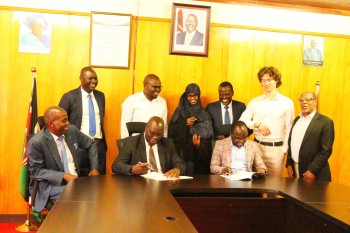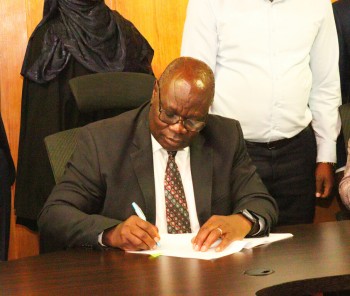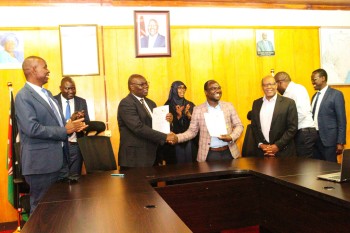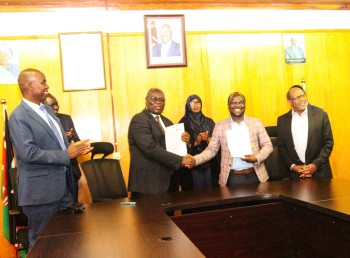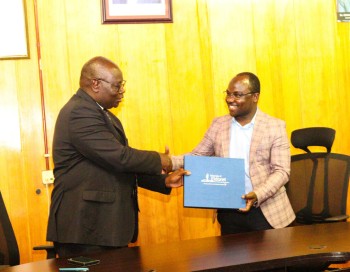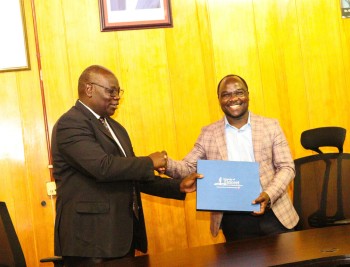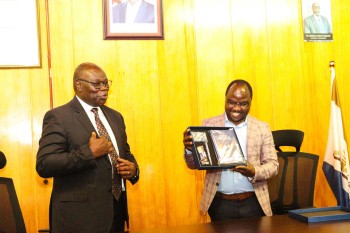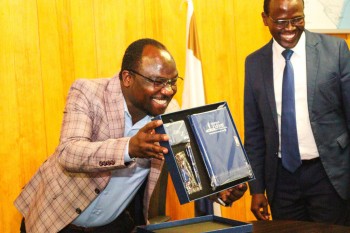University of Eldoret, on 28th July, 2025, signed a Memorandum of Understanding (MoU) with FIBS-RILLL AFRIQUE LTD COMPANY in their efforts to improve skills development in the country. This collaboration speaks to the University of Eldoret’s mission of meeting the needs and aspirations of the dynamic society through provision of relevant short term trainings that targets local communities’ production value chains. The aim is to link local production to relevant skill development in the training institutions integrating entrepreneurship to improve local production.
The Deputy Vice Chancellor, Prof. Philip Raburu, representing the Vice Chancellor, Prof. Thomas Kimeli Cheruyoit, indicated that this collaboration was timely. It fits well in the University’s community outreach role, where the university positions itself as a training centre that brings the community together for targeted short-term training capable of solving some of the emerging societal problems. He further noted that skill development that cuts across various subsectors of local production is necessary to bridge the gap between education and training in the training institutions and the local production in the communities.
FIBS AFRIQUE was represented by Dr. Waiswa Waanaseti, Deputy Managing Director, and Mr. Kolya Zickerow, Director Visibility. Also present during the signing of the MoU were; Prof. Godfrey Netondo, DVC Academics, and Student Affairs, Dr. Fatuma Daudi, the Director Partnerships and Linkages who also represented Prof. Lizzy Mwamburi, Director Research, and Innovation, Dr. Hoseah Kiplagat, Dean School of Education, Dr. Jafred Muyaka and Prof. Ahmed Ferej, the Contact persons from the University for the MoU, and Dickens Osia representing the University Legal Office. Through this partnership, FIBS AFRIQUE and University of Eldoret aim to implement programs that include Development and implementation of market relevant and competency-based short-term training programs. This will include modules, teaching guides to the modules and approaches to delivery of the modules and Investment in TVET infrastructure to create model training centres for various workspaces. This will include upgrading of workshops, instructional facilities and equipment; Capacity building for TVET policy development, implementation, and adoption; Promotion and institutionalizing of collaborations among the key stakeholders including TVET institutions, practioneers, Jua Kali Associations, government agencies such as KICD, TVETA, MoE, FIBS RILLL, FIBS Germany etc; Training of Trainers of Trainers, training/re-training of faculty on the identified TVET areas; Curricula review of the existing curricula for bachelors, masters and PhD programmes to align with the changes needed to produce industry relevant products; and development of joint proposals for actualization of the planned activities.

